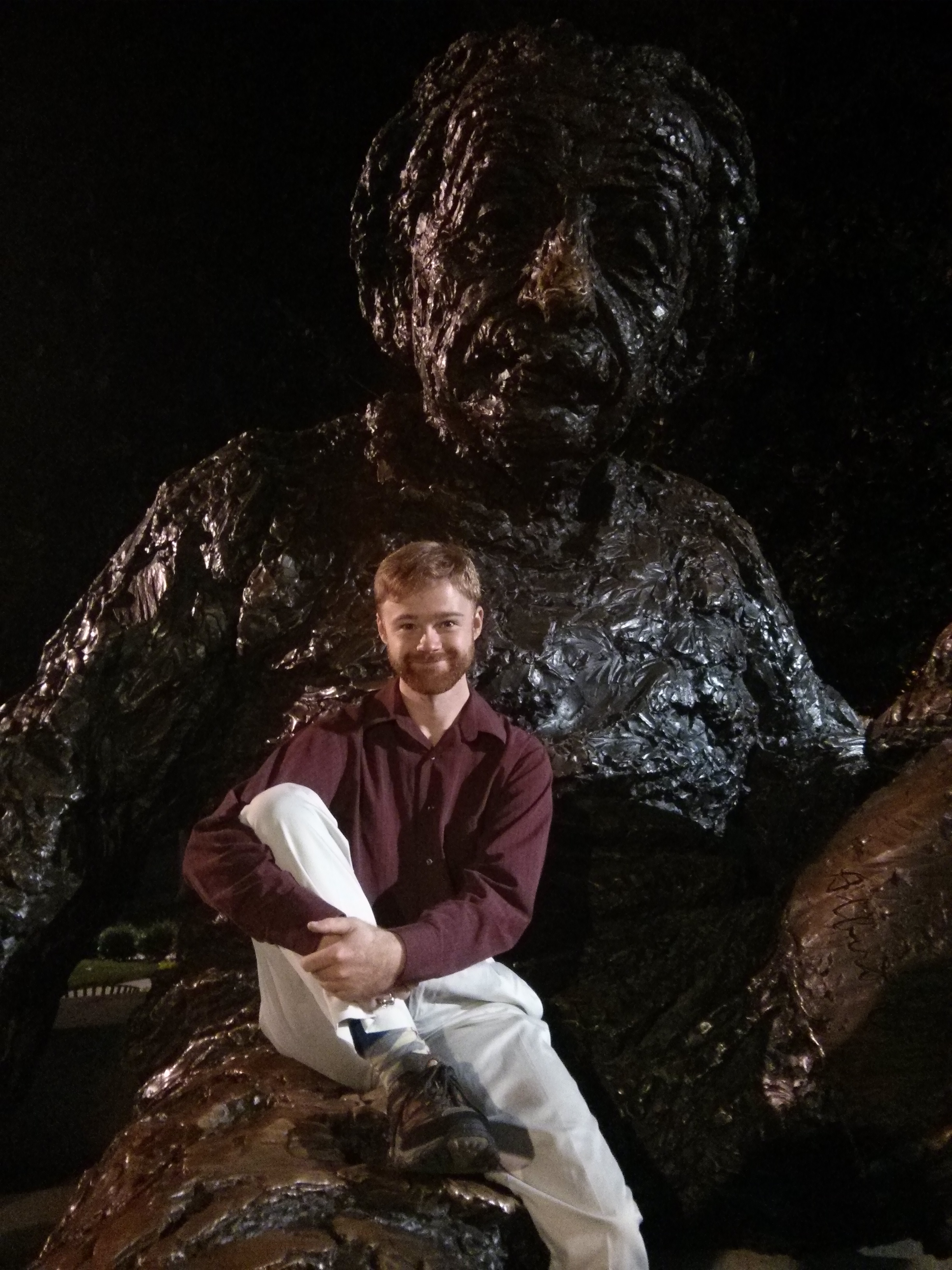When reading the “About Me” pages of professionals and academics, I’m sometimes struck by how insincere they sound. Rather than giving you a glimpse into the heart of this person, they often talk about themselves in the third person, and just try to pack all their best accomplishments into a shortest possible paragraph. If you would so permit me, I’d like to provide you with a somewhat unusual look into who I am as a scholar, a teacher, and a human. If you are interested in a more traditional look at my accomplishments, please feel free to check out my Curriculum Vitae.
First, a few basics: I received my Ph.D. from the University of California, Berkeley in Molecular and Cell Biology where I discovered how much I enjoyed the process of teaching. Unfortunately, my research kept me from teaching as often as I would have liked, so once I graduated, I took a short break from my research to teach and to practice the craft of pedagogy. I currently teach several courses at Diablo Valley College in Pleasant Hill, CA.
I am curious.
As I always tell my students, the most important quality of a scientist is not the vastness of their knowledge, but their curiosity. Indeed, I see this as one of the primary goals of a liberal arts education. I want my students to see the world in a different way after they leave my classroom – to be willing to question their assumptions about the world around them. There are many important skills needed in the hunt for truth, but the journey only happens if it begins with a question. And while sparking and encouraging curiosity in students is a most difficult endeavor, it has always been one of my central goals as a teacher in the classroom and as a mentor in the laboratory.
Curiosity is a significant driving force in my own life. It has led me to develop a number of diverse interests, both within biology and outside of it. My research forces me to look outside the traditional boundaries of my field. And each time I do so, I pick up training and expertise in a new discipline – immunology, microbiology, cell biology, genetics, optics, and a dash of biophysics, developmental biology, and traditional biochemistry are all used in my work. You can read more about my research here.
Curiosity has also driven me to explore astronomy, philosophy, psychology, and above all – history. In some ways, the Sequencing History podcast is just an excuse for me to talk about some of the wondrous stories that have so captivated my own imagination and intellect.
I am dedicated.
I rarely do anything lightly. My philosophy is that everything I do should be deserving of my name, and so I throw myself headlong into my professional life and hobbies. This has driven me to discover and experiment with different pedagogical techniques. I never teach a class the same way twice – I am constantly refining the goals I have for a course and seeking new ways to allow students to meet them. I am a proud member of the Partnership for Undergraduate Life Science Education (PULSE) – a community of educators who seek to revolutionize the way we teach biology to majors, non-majors, and the general public with the goal of creating citizens who know how to seek out information, assess its veracity, and come to their own conclusions grounded in these facts. A lofty aspiration to be sure, and while I don’t presently know the best way to help students achieve it, I am trying new techniques while also capitalizing on those which have proven successful in the past. And I think that each class I teach helps students realize this goal a little better.
I am a storyteller.
It may seem odd to describe a scientist as a storyteller, but to me biology isn’t just the study of life, it is discovery of life’s story. I’ve always been a sucker for a good tale, and what story could possibly be better than that of life on earth? I feel privileged to be able to relate parts of this vast story to my students, while also writing (or perhaps translating) new parts of the story through my research.
I often think of history as the anthropocentric version of the same epic – one which we are fortunate enough to have more easily decipherable records of. And while I’m sure that the authenticity and the veracity of these records is of major concern to historians, as a mere appreciator of history, I find this nearly endless supply of material wonderful. I can’t wait to release the first episode of Sequencing History and share some of these wonderful stories with all of you!
Want to know more about me? Check out the page on my research to get a sense of my scholarly interests, and take a look at my student evaluations to see what students think of my classes. And finally, check here for more information about the upcoming Sequencing History podcast.

